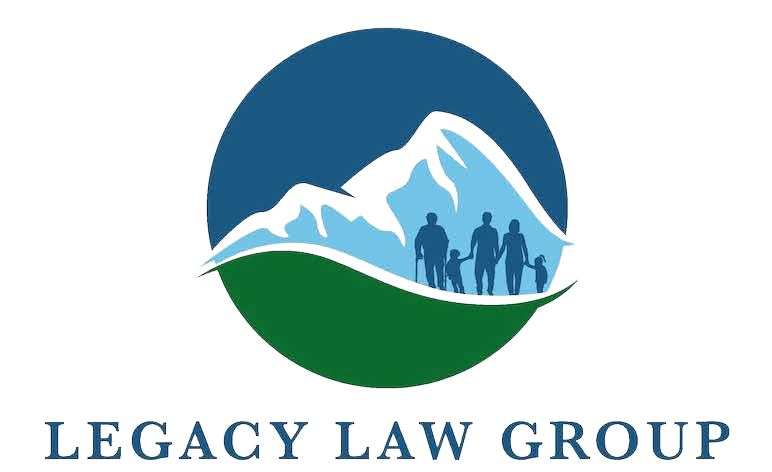The holidays are right around the corner, which means more time to gather with family and relatives than any other time of the year. If you’ve been meaning to talk to your family about money, inheritance, end-of-life decisions, estate planning, and creating a plan for your whole family’s wealth – now and in the future – having everyone in the same room is ideal.
But asking your relatives how they want their assets handled when they die or if they become incapacitated might not go over well while opening presents or carving a turkey.
To keep your family from feeling blindsided and to make the most of your conversation, consider the following three tips.
01 | Share Your Intention Ahead of Time
Many people feel uncomfortable talking about their finances. They may have grown up in a family where money talk was considered taboo or perhaps they simply don’t want the details of their finances to create family tension. Some people also feel like talking about estate planning and making a plan for their money is plain bad luck (but we’re happy to report that planning for your assets does not increase your chance of dying, as you’ve already got a 100% chance of death, but it does increase your chances of leaving behind a happy, well-adjusted family).
To help your loved ones feel at ease, don’t bring money talk up for the first time while the family is gathered around the TV watching football. Instead, approach the topic weeks ahead of time if possible.
If you have regular visits or phone calls with your loved ones, let them know you’ve been thinking about creating a plan for your own money and the care of the family in case something happens to you. Casually mentioning that it’s on your mind will help plant the seed for a future conversation with your loved ones and likely get them thinking about their own plan or lack of a plan.
As your family gathering approaches, bring up the subject again, this time with more intention and detail. Consider asking the host of your family gatherings, whether it’s your sibling, parent, or adult child when the best time would be to have an all-family conversation about money for 90 minutes. Schedule it and let everyone know that you’ve got something meaningful planned.
If the host pushes back against the idea, respond with curiosity about their experience, what they feel apprehensive about, and if there is a way that you could mitigate their apprehension perhaps by speaking with other family members in advance.
If you’ve already completed your own planning, use your experience as a springboard for the conversation. More on this below.
02 | Set Aside a Time and Place to Talk
Discussing money while opening Christmas gifts isn’t likely to have the results you want. Your best bet is to schedule a time to gather to talk without distractions or interruptions.
Be upfront with your family about the meeting’s purpose so no one is taken by surprise and so they come prepared for the talk. Choose a setting that’s comfortable, quiet, and private. The more relaxed everyone is, the more likely they’ll be comfortable opening up.
Begin by sharing the context of why it’s important to you that your family begin having conversations about money, life and death. You may even want to share that the topic is uncomfortable for you, but that it’s important enough that you are willing to be uncomfortable because you know that these conversations can bring your family closer together, create more family resilience, and ensure you are all financially well-cared for, always.
Finally, as part of setting context, set a start and stop time for the conversation. Remember, the goal is to simply get the conversation started, not work out all of the details or dollar amounts, so don’t expect this to be the one and only conversation you have – its a start.
03 | Share Your Planning Experience
If you’ve already created your own plan, and it included an inventory of your assets, a look at what is enough, and what would happen to it all when something happens to you (which is what we do during our first Planning Session with you), you can start by explaining how you felt during the process, how easy it was, and how you feel now knowing that your assets and loved ones will be cared for the way you want if something happens to you.
If you’ve worked with us as your Personal Family Lawyer® firm, describe how the process unfolded and how we supported you to create a plan designed for your unique wishes and needs.
Share any concerns or doubts you initially had about planning and how we worked with you to address them. If you have loved ones who’ve yet to do any planning and have doubts about its usefulness, empathize with them in a supportive and understanding way, and share your own journey learning the benefits of planning for your money and your wishes.
If you haven’t created a plan yet, or have doubts about a plan you created with another attorney, be open about why you want to create a plan for your life and death, such as a desire to avoid family conflict, to ensure that a child, disabled relative, or senior parent is cared for in the future, or to build generational wealth and a legacy for your family. Focus on the benefits that planning will have for both your immediate family and your extended family as a whole.
Bringing Families Together
Talking to loved ones about money and estate planning can be difficult, but as your Personal Family Lawyer® firm, we can guide and support you in having these intimate discussions with your loved ones. When done right, planning can put your life and relationships into a much clearer focus and offer peace of mind knowing that your assets will be protected and that the people you love most will be provided for no matter what.
If you’ve already created a plan with us, be sure to share our library of blog resources HERE with your loved ones. If you haven’t created your own estate plan, doing so before you talk with your family can help your loved ones be more open to the idea and can help them see the incredible benefit of planning from one of their own family members.
Schedule a complimentary call with us using the button below to learn more.
To get started, click here and schedule a complimentary 15-minute call.









